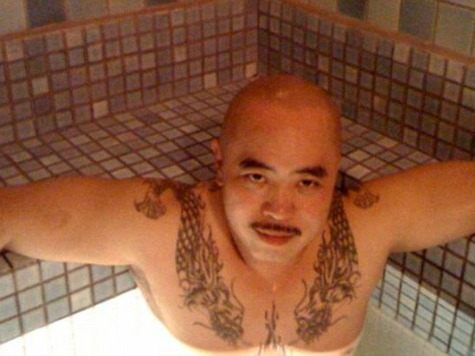On Monday, a federal prosecutor asserted that evidence exists revealing that Raymond “Shrimp Boy” Chow, former leader of the Ghee Kung Tong gang, and now on trial for racketeering, solicited the murder of the gang’s previous leader, Allen Leung.
The San Francisco Chronicle reports that Assistant U.S. Attorney William Frenzen told U.S. District Judge Charles Breyer, “We have been able to link (Chow) to soliciting that murder,” pointing out that Chow succeeded Leung only six months after Leung was shot to death in his business office in 2006. Frenzen added, “Mr. Chow did not take over the (tong) because of his business acumen. This was how he asserted power,” according to the Chronicle. Frenzen also reportedly said that he had evidence Chow attempted to solicit the murder of a member of the San Francisco street gang Hop Sing Tong. That man and his wife were later murdered.
Although Frenzen alleged Chow was behind Leung’s murder, the prosecution in Chow’s racketeering case has not charged him with murder; “Mr. Chow did not take over the (tong) because of his business acumen,” Frenzen told the judge. “This was how he asserted power.”
Defense lawyer Curtis Briggs had a blunt response to Frenzen’s assertion, telling Breyer, “If there is a murder being charged, let’s charge it,” telling reporters that Frenzen’s claim was “a farce. … They don’t have any evidence.”
Breyer did not decide whether the prosecution’s evidence was admissible, instead instructing Frenzen to file the evidence under seal so jurors’ deliberations would not be affected. Briggs and Chow decided that the evidence should be unsealed, with Briggs telling Breyer, “We have nothing to hide.” Breyer then agreed the filing could be public.
The FBI’s five-year undercover sting that nabbed Chow also included State Senator Leland Yee, who was also charged with racketeering charge, as well as former San Francisco School Board president Keith Jackson. Last month, Chow’s attorneys blustered that the U.S. attorney’s office had selectively targeted him among the numerous politicians and local civil rights leaders investigated by the FBI. His attorneys sought a “motion to dismiss for selective prosecution.”
Chow was once fêted by San Francisco’s political elite for his supposed reformation after a life of crime, and for his contributions to the community. Last year, he address a forum on journalism at the University of California Berkeley–from jail.

COMMENTS
Please let us know if you're having issues with commenting.